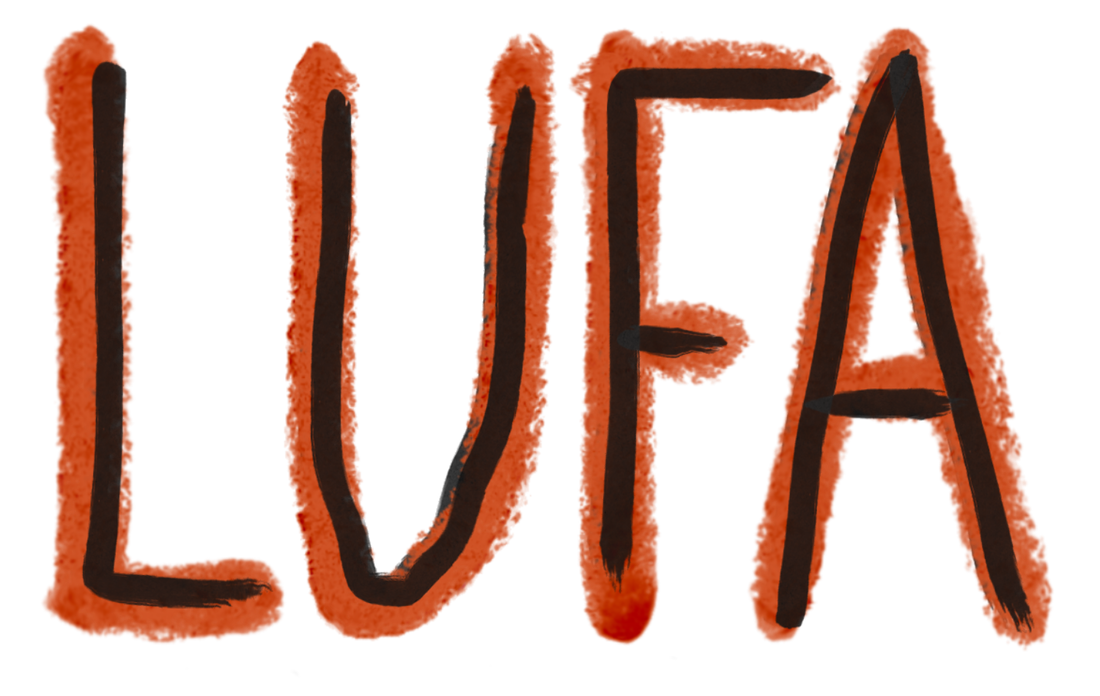|
Contributed by LUFA research assistant Peter Dziaba.
This summer, two new students have joined the LUFA team to conduct fieldwork in Northwest Indiana. Rising junior Campbell and just-graduated senior Peter Dziaba will be continuing field data collection as a part of LUFA's CommuniTree research by conducting an inventory of the several thousand trees planted through the CommuniTree initiative. Peter and Campbell’s work focuses on trees provided to applicants by the Northwestern Indiana Regional Planning Commission (NIRPC), a "backbone" organization of the CommuniTree coalition. Campbell has spent the last few months compiling the vast amount of application data into an inventory map, while Peter contributes his background in plant identification and socio-ecological systems. Peter also drives the duo down to Northwester Indiana 2 - 3 times for the fieldwork each week using the ENV department van. This year, Campbell and Peter are using an EpiCollect5 data collection form put together and used by last year's summer field crew, Lukas Gilkeson and Nicole Puka. To prepare for this summer's fieldwork, Lukas and Nicole joined Peter and Campbell out in the field to train them through filling out the form, taking measurements, and conducting community engagement at each site. On the second day of training, the team met with U.S. Forest Service Chicago Region Natural Resource Liaison, Drew Hart out at Lost Marsh Golf Course in Hammond, IN, for further training and practice with the form and measurements. This training with Nicole, Lukas, Elene, and Drew (not to mention the high heat index and sunny weather of those first few days!) were invaluable to preparing Campbell and Peter for this summer's fieldwork. Lab director Dr. Jess Vogt was able to meet Peter and Campbell out in the field during their second week, and give some indispensable identification and measurement tips. Since then, this summer's field crew has been to sites throughout NW Indiana, from the Town of Dyer to Michigan City and sites in between. The data and insights from this research will be shared back to the organizations of the CommuniTree initiative. Peter and Campbell are now in the full swing of fieldwork, and are excited to continue the work through the end of this summer! Enjoy some photos of interesting sites from the students first couple weeks in the field in the gallery below.
0 Comments
The MS Environmental Science program at DePaul University is recruiting for 1 two-year DEI Graduate Assistantship for a thesis student beginning* the program in Fall 2022.
This student GA will receive full tuition remission (52 credit hours) as well as a 20 hr/week stipend ($19/hr) during academic quarters (3, 10-week quarters per academic year). During AY22-23, 60% of the student’s GA time will support the Environmental Science and Studies Department’s Diversity, Equity, and Inclusion (DEI) efforts, with 40% of the student’s time dedicated to their thesis research. During AY23-24, thesis research time will comprise 90% of the GA’s hours, with 10% time on DEI work; the student is expected to complete their master’s thesis at the end of this second academic year, in Spring Quarter 2024. Diverse candidates encouraged to apply. *Current students in the program who have completed fewer than 8 credit hours by the end of spring quarter 2022 are also eligible to apply. Thesis research topics: Students interested in applying for this GA position are strongly encouraged to reach out to current Environmental Science and Studies (ENV) faculty to discuss potential thesis research topics and opportunities before completing an application. Competitive applicants for the GA position will have determined a potential research topic and secured the willingness of a faculty member to advise their thesis research. To apply: Please submit your application for the MS Environmental Science program through the graduate school website (https://grad.depaul.edu/apply/) ,where you will be asked to submit basic applicant information, transcripts for all previous universities attended, 1-2 letters of recommendation, and a Personal Statement. IMPORTANT: To be considered for the funded GA position: After the main text of your ~1-page Personal Statement, please answer the following questions after a bolded section heading reading, “Additional Questions for GA Applicants.” (If you’ve already applied and been admitted to the program for Fall 2022, please re-submit your application materials and amended personal statement with the following questions to jess.vogt@depaul.edu to be considered for the GA position.)
Timeline: Applications are accepted on a rolling basis and admissions decisions are generally made ~4 weeks after you submit your application. To be considered for the GA position, students must submit their application before June 17, 2022. All applications for the GA position submitted before the deadline will be evaluated competitively and the admitted student awarded the GA position will be notified by the end of July or sooner. Criteria for Applicant Evaluation: Applicants for the GA position will be evaluated on their academic qualifications and program fit; meeting the program prerequisites; preparedness for graduate-level research; faculty advisor and research fit; and demonstrated diversity, equity, and inclusion efforts. Questions/Contact: With any question about this position or the program in general, please contact MS ENvironmental Science Program Director and ENV faculty member Dr. Jess Vogt: jess.vogt@depaul.edu Nicole Puka was a research assistant with LUFA from March 2021 to March 2022. She wrote the following about her personal experience in the lab as she graduated last month from DePaul with her BA in Environmental Studies. 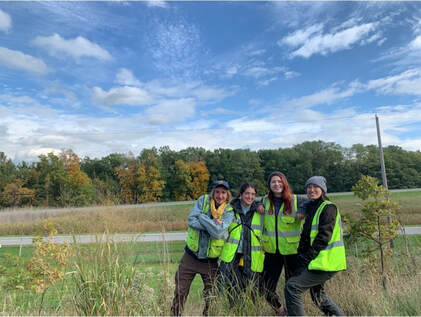 Lukas Gilkeson, Elene Drosos, Nicole Puka, and Kristine Lorenzo pose for a picture in an industrial site on the last official inventory day. Lukas Gilkeson, Elene Drosos, Nicole Puka, and Kristine Lorenzo pose for a picture in an industrial site on the last official inventory day. I worked for LUFA for an entire year, yet it felt like so much longer! So much happened within that time that it’s hard to put into words just how impactful LUFA has been on me. I’ve grown educationally, personally, and spiritually from my experience with the lab, which I know sounds a bit cheesy, but it’s true! Working for the lab definitely gave me the hands-on experience that I needed to help me learn. Before starting, I knew absolutely nothing about trees. Even after taking the Openlands TreeKeepers course, the information just wouldn’t stick. But after being out in the field, my tree knowledge greatly expanded. Now, I bother my friends and family whenever we’re out, often pointing out different tree species or mentioning how I learned to distinguish different trees: did you know that swamp white oak leaves are fuzzy on the underside? I think everyone’s heard all of my field work stories by now, such as the time I was almost attacked by a squirrel, or the time the SCA crew let us drink from a fire hydrant, or the time I made Lukas stop for some ice cream on the way home, causing us to get stuck in traffic. One way or another, these stories helped me solidify new knowledge. A major reason why I was able to learn so much was because of how Jess manages the team: she’s there to help every step of the way, but really lets us be independent. This allowed me to solve problems and come up with new ideas on my own while also getting feedback to point me in the right direction. On a personal level, I’ve grown quite a bit from the person I was a few years ago. I struggle with pretty bad social anxiety and it even took a lot from me to join LUFA in the first place. Looking back, it’s really interesting to see how nervous I was to meet the LUFA team, CommuniTree affiliates, my field partner, and talk to people in the field. But these fears were lifted right away. The LUFA team was so welcoming and supportive and quickly became my role models. The CommuniTree affiliates were not as scary as I thought they’d be; they’re just super nice tree lovers! My field partner, Lukas, also helped me, probably more than he knows, in feeling comfortable interacting with strangers and experiencing new things. I’ll never forget the first day of fieldwork where he offered me some dried grasshopper as a snack - not only was that my first time meeting Lukas, but it was my first time eating insects too! One fieldwork story that changed my perspective and will always warm my heart involves Carmen, who was mentioned in a previous blog post. Lukas and I helped her move some mulch, and during this we had some insightful conversations regarding different life experiences. I’ll never forget what she told me: “Those who foster the greatest sense of community are those who don’t have much.” Her words helped me recognize the differences in experiences I’ve had from others and showed me first-hand just how important urban forestry, as well as any environmental discipline or movement, is for the benefit of communities. I’ve grown spiritually in my appreciation for nature. Oddly, after going tree-by-tree out in the field, I’ve started perceiving organisms on an individual level. Each tree we inventoried, every insect Lukas held up to my face, and all the strange plants we came across widened my outlook on nature; not only is it made up of a variety of individuals, but it also exists in all different types of spaces. I’m so grateful to have experienced working for LUFA. I’m sure the shy, freshman-year Nicole would have been shocked to know she would go on to do something so out of her comfort zone. She would have been elated to know that she did something so cool but would also probably cringe at how cheesy future Nicole is. ;) I wish the future LUFA team, as well as the CommuniTree team and project, the best! A note of thanks from Jess: Thanks, Nicole, for all you've helped the team with! We couldn't have done fieldwork without you - you emerged as an excellent field worker and great leader during the year. And your attention to detail, creative problem solving, and knack for logistics really made the last year of data collection and analysis go smoothly. We can't wait to see what you get up to next.
DePaul LUFA: Lab for Urban Forestry in the Anthropocene members and Environmental Studies majors Nicole Puka and Lukas Gilkeson recount their experience out doing fieldwork in Northwest Indiana as a part of Dr. Jess Vogt’s CommuniTree research. 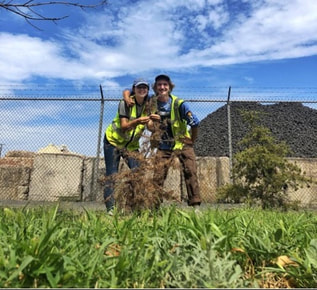 During the summer of 2021, Lukas and I drove out to CommuniTree planting sites around Northwest Indiana to inventory some of the 8,000+ trees the initiative has planted since 2017. I was usually in charge of filling out our data collection form through a program and app called EpiCollect, while Lukas took measurements of each tree’s DBH, caliper, total height, and height to crown. Data collection didn’t always go as smoothly as we wanted it to! After finishing up data collection at a site right next to Lake Michigan (Marquette Park), Lukas and I were greeted with a sudden downpour. While the rain was welcomed in the heat, we didn’t quite enjoy being soaked. 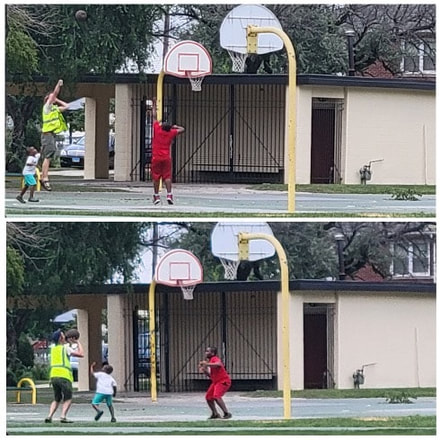 Lukas has a knack for adding fun to fieldwork. From jumping in a lake on a hot day to swinging from ropes during our breaks, he made our heat exhaustion seem nonexistent. Lukas was also great at making friends! After finding a fairly deflated and barely-bouncing basketball at Sunnyside Park in East Chicago, Lukas threw some hoops during our lunch break. Two nearby kids decided to join in the fun! The kids say they won, but Lukas won’t admit to it. ;) 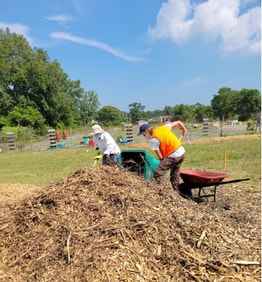 Meeting members of the communities that we were inventorying in was one of our favorite parts of fieldwork. During a visit to what we thought was a site under the Gary Water Tower, we were surprised with a beautiful community garden. "Farm-her" Carmen Cita McKee welcomed us to Oases Botanic Gardens with open arms, giving us an in-depth tour of the gardens’ trees and plants and explaining the positive impact the gardens have on the local community. She also asked if we could help her mulch, so of course we said yes! Carmen would like to let others know that the gardens are a great fit for community or business projects, volunteer opportunities, event hosting and more. She welcomes you to follow the gardens’ Instagram: @oases_botanic_gardens! 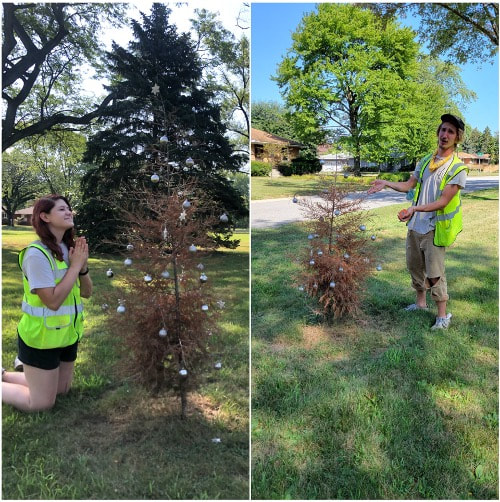 Lukas and I loved hearing stories from residents. We spoke to everyone we could, but most of the time they would come up to us to ask what we were doing! These individuals clearly loved their trees; many of them told us they never forget to water, and others showed their affection by displaying decorations around their tree. These moments always made our workday so much more exciting and left us smiling for the rest of the day. Lukas and I love talking about our fieldwork experience so we invite you to chat with us! Please enjoy some of the photos we took during fieldwork. This summer, we've welcomed to the LUFA team two new students who are doing fieldwork in Northwest Indiana as part of our CommuniTree research. Nicole Puka and Lukas Gilkeson (see their bios here) are conducting an inventory of some of the 8,000+ trees planted by the CommuniTree initiative. Nicole is our tree protocol expert: She spent May and June looking through the scholarly literature and existing tree inventory protocols to develop the protocol the team is using. The final protocol went through lots of revisions based on feedback from several meetings with CommuniTree partners and then testing during field work training at the beginning of July. According to the final version, at each tree CommuniTree planted, the team will document tree location and mortality status; verify species with CommuniTree records; measure the diameter at breast height, caliper (diameter 6” from the ground), total tree height, and the height to the bottom of the tree’s crown; look for and document any evidence of pests or diseases; assess mulching, pruning, or staking (maintenance) needs; categorize planting area type and ground cover around the base of the tree; and make a variety of tree condition assessments including crown dieback, lower trunk damage, and any other visible damage. A copy of the full protocol will be available from the CommuniTree project page soon. Lukas is our GIS database expert: He spent May and June gathering pre-existing tree location data from CommuniTree partners, including the Student Conservation Association (SCA), Northwestern Indiana Regional Planning Commission (NIRPC), Wildlife Habitat Council, and others, and collecting all this information into a single file of all CommuniTree tree points, and loading the data into ArcGIS Online for viewing during fieldwork in the ArcGIS Explorer app. For some planting sites where individual tree points weren’t available, Lukas compiled lists of sites with tree numbers and species information, and the team will gather precise location data on site during fieldwork. Lukas also pulled together a geodatabase of not only tree location data but existing land use/land cover data, U.S. Census data, and other social-ecological data, which will be used during postprocessing and data analysis this fall. Lukas is also the driver during field work, getting the team to and from Northwest Indiana 3-4 times per week using the DePaul Environmental Science and Studies Department van. Nicole and Lukas then worked together to set up a form for tree data collection in EpiCollect5, a free spatial data collection software that allows us to set up a custom data collection form for this project. We chose to use EpiCollect over a variety of other possible data collection apps (e.g., ArcGIS/ESRI’s Survey123, iTree Eco) because we wanted a free, easy-to-customize form and application that could be turned over to CommuniTree partners for their own future use after summer data collection is over. In the first week of July, we tested the protocol down at Lincoln Elementary School in East Chicago with the help of Drew Hart, the US Forest Service Chicago Natural Resources Liaison and a key CommuniTree organizer; Joe Exl of the Northwestern Indiana Regional Planning Commission (NIRPC), a CommuniTree “backbone” organization, and the four members of the Student Conservation Association (SCA) Calumet Tree Conservation Corps. The SCA crew spends most of their summer months working on tree watering, mulching, and pruning, but we’re excited that this summer they will also be helping us out on the research by doing some tree inventorying whenever they can! Thank you, SCA! So what will be doing with the data that Lukas, Nicole, and the SCA gather this summer? Come this fall, we’ll be analyzing the data to figure out what social-ecological factors might be influencing the survival of CommuniTree-planted trees. Learn more on the CommuniTree research project page here. And stay tuned for more updates throughout the summer! Annalise Nordgren has been a research assistant with LUFA since fall of 2019. She wrote the following profile of her experiences in research and with DePaul Urban Gardeners for the ENV Department newsletter. 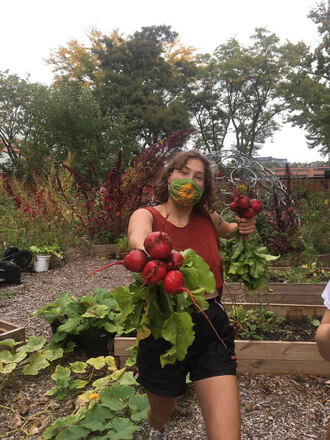 My name is Annalise Nordgren. I am finishing up my senior year at DePaul University with a B.A. in Environmental Studies. I transferred into DePaul in 2018, my sophomore year of college, after a year of feeling lost at my previous school. Off the bat, I became giddy with the varied opportunities the Environmental Science and Studies department offers to its students, from research opportunities to involvement in student orgs! I started working in the Chaudhary Ecology Lab run by Dr. Chaudhary my first year. With Dr. Chaudhary I worked on creating a spore extraction protocol to determine mycorrhizal spore viability. The following year Dr. Chaudhary received an NSF grant which allowed her to move to Berlin for a year to continue her research. During that time, I worked with Dr. Vogt in her Lab for Urban Forestry in the Anthropocene (LUFA). Although I am no longer working on a project with Dr. Chaudhary, I still try to attend lab meetings when I am available, as the lab community she has developed is such a supportive one! My research with Dr. Vogt allowed me to develop an interest in urban forestry and arboriculture. I am currently working on a project studying the tree damage caused by the Derecho storm in August 2020, which was responsible for the loss of over 7,000 trees in the Chicago land area. I have been so fortunate to find wonderful mentors in Dr. Vogt and Dr. Chaudhary, both very inspirational researchers in their fields. At the beginning of my first year here at DePaul I became involved in the DePaul Urban Garden (DUG), which, at that point, was called Urban Farming Organization (UFO). As a fresh new volunteer, I grew to love the space and the community of students and faculty that gathers there. I have been lucky enough to serve as a board member during the garden transition, a project which has been ongoing over the past two years. DUG received a grant from the Vincentian Endowment Fund which allowed us to invest in a new garden space. See the photo gallery below with pictures! We purchased raised bed material to construct 30 new raised beds. In creating this new space, we wanted to incorporate not only our commitment to gardening but also to give back to the community. We wanted to include a central meeting space and did so with materials mainly sourced from recycled bicycle rims. In addition to the physical changes in the space, we have redefined the goals of the organization. DUG has made a commitment to grow produce primarily intended for donation to those living with food insecurity. DUG greatly appreciates the healing properties of spending time outside and in nature. We have made it our goal to open up the space to DePaul organizations and volunteers for events, activities, and healing time. For more information about DUG involvement please reach out to DUG at depaulurbangardeners@gmail.com. DePaul University has received the 2020 Tree Campus USA certification from Arbor Day Foundation, making it the third year to be recognized for its on-campus tree efforts! With the pandemic restricting in-person events, the DePaul Trees student group took the lead in offering online resources around seasonal tree identification, stewardship and advocacy, and virtual urban forestry events, including observance of Arbor Day in April. Recognition as a Tree Campus offers DePaul students a connection to a broader network of resources that engage them with urban forestry locally and beyond. Caring for the urban forest is also caring for people as it enhances sustainability and livability of our cities, and DePaul is proud to be a part of that work in Chicago. By celebrating these efforts on campus, we are able to promote practices and skill sets to take not only into future careers but into our personal lives as we interact with trees wherever we may be.
To be a part of growing this work in 2021, join the DePaul Trees student group on DeHUB for email updates, check out our social media (Facebook, Instagram & Twitter), or send an email to depaultrees@gmail.com. You can also explore the trees on the Lincoln Park campus from home on our interactive tree map. See also the LUFA Trees@DePaul page. The above post was written by DePaul Trees president, Alli Preble. Alli is currently finishing her thesis using soundscape ecology to evaluate urban park management for her MS Environmental Science degree at DePaul. Alli is also a former LUFA research assistant: in 2017, she conducted field work inventorying street trees in Dolton, IL. New LUFA member Elene Drosos provides an update on the newest LUFA project, evaluating whether virtual street imagery can be use to assess storm damage from the August 2020 derecho storm. Elene writes: This winter intersession, I was recruited by Annalise, Camila, and Dr. Vogt to become a research assistant in the Virtual Tree Inventory Project. For this part of the "virtual" project, however, we were actually outside in the middle of winter! My duties were to mainly take the pictures of storm damage and of species characteristics on each of the trees we surveyed. I also measured the DBH, plot area, and height of the trees, working alongside Annalise and Camila. Most of the time though, Annalise would be in charge of the clipboard for our written data, Camila would measure plot area and height, and I would be responsible for the photos that we are currently using for analyzing storm damage and identifying uncertain tree species from each surveyed transect. I used my cell phone to take pictures and was always armed with a battery pack so that we could soak up all of the little daylight in December and collect as much tree data as possible. Now that we have all of this data, we hope to analyze it virtually with the help of street view imagery. Stay tuned for future updates as we enter the next phase of this project where we'll be using virtual imagery to verify the location and species of trees before the storm, so that we can compare to field data and determine what tree characteristics were likely to lead to tree failure.
LUFA student Camila Cortez was profiled this week in DePaul's Newline publication! Camila is working on the TreeKeepers project as her senior B.S. thesis for the B.S. Environmental Science degree and also a McNair Scholar. Click the screen shot below to see the full article.
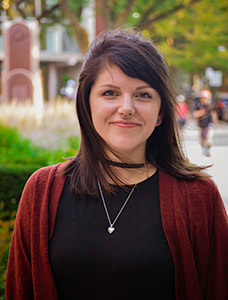 Guest post by former LUFA student Kaitlyn Pike. Kaitlyn graduated from DePaul in June 2020 with her M.S. in Environmental Science and is currently working on her Ph.D. in Forestry at the University of British Columbia in Vancouver. In December, my first peer-reviewed paper, “Tree preservation during construction: An evaluation of a comprehensive municipal ordinance,” was accepted for publication in the journal Urban Forestry & Urban Greening. My paper, which evaluated the effectiveness of a tree preservation ordinance in the City of Highland Park, was my thesis research that I completed during my time in DePaul’s M.S. in Environmental Science program. As we know, mature trees provide us with a plethora of benefits – from carbon sequestration and stormwater management, to improvements to our mental and physical health (Roy et al., 2012). As urban populations continue to rise, however, protecting mature trees has proven to be a challenge for towns and cities that wish to maintain or increase their tree cover. This is particularly important, as studies continue to find that unrestricted construction can negatively impact the condition and survival of trees (Koeser et al., 2013; Morgenroth et al., 2017; Guo et al., 2018, 2019). While tree preservation ordinances (i.e. rules and regulations that protect trees during construction projects) are becoming more common for public trees on public property, it is less common that these types of ordinances exist for private trees on private properties. Highland Park, IL, a city with a robust and well-funded forestry department, has had a tree preservation in place for the past few decades. Having already worked with Highland Park’s City Forester, Dr. Keith O’Herrin, on another project during my B.A. in Environmental Studies, working with the City to evaluate their tree preservation ordinance for my M.S. was a great opportunity to gain further experience designing and implementing a research project that aimed to solve a real-world problem. Working with Highland Park’s Forestry Section not only gave me invaluable experience into how forestry departments operate, but allowed me to utilize municipal and public records in order to evaluate the effectiveness of the City’s tree preservation ordinance. The results of my research found that the City of Highland Park is successfully protecting the trees on properties that undergo residential redevelopment – where existing, older homes were demolished and replaced with newer homes. This was evident through 1) a satisfactory tree preservation rate (calculated by using construction site maps to determine which trees were removed after construction occurred vs. which still remained), 2) having found no correlation between tree condition or survival and a tree’s distance from a newly built home (contrary to what previous studies had found where no ordinance was in place), and 3) having found that the soil within the critical root zones of trees was successfully maintained (by not surpassing the literature-recommended compaction level for healthy root growth). Furthermore, my research found that areas where construction activities occurred freely had more compacted soils, while areas where construction was restricted (within the critical root zones of trees) had less compacted soils. This is one of the first studies that demonstrates how tree preservation ordinances can successfully protect trees and soils on properties that undergo construction. If you’re interested in reading my paper, you can find it here. I was also able to share my results as a poster at the 2020 International Society of Arboriculture Annual Conference, which can be viewed here (or click on the poster below). Please don’t hesitate to reach out to me regarding my research, or if you have any questions about my experiences in LUFA or DePaul’s M.S. in Environmental Science program: kaitlynpike@gmail.com References
Guo, T., Morgenroth, J., & Conway, T. (2018). Redeveloping the urban forest: The effect of redevelopment and property-scale variables on tree removal and retention. Urban Forestry and Urban Greening. https://doi.org/10.1016/j.ufug.2018.08.012 Guo, T., Morgenroth, J., Conway, T., & Xu, C. (2019). City-wide canopy cover decline due to residential property redevelopment in Christchurch, New Zealand. Science of the Total Environment. https://doi.org/10.1016/j.scitotenv.2019.05.122 Koeser, A., Hauer, R., Norris, K., & Krouse, R. (2013). Factors influencing long-term street tree survival in Milwaukee, WI, USA. Urban Forestry and Urban Greening. https://doi.org/10.1016/j.ufug.2013.05.006 Morgenroth, J., O’Neil-Dunne, J., & Apiolaza, L. A. (2017). Redevelopment and the urban forest: A study of tree removal and retention during demolition activities. Applied Geography. https://doi.org/10.1016/j.apgeog.2017.02.011 Roy, S., Byrne, J., & Pickering, C. (2012). A systematic quantitative review of urban tree benefits, costs, and assessment methods across cities in different climatic zones. In Urban Forestry and Urban Greening (Vol. 11, Issue 4, pp. 351–363). https://doi.org/10.1016/j.ufug.2012.06.006 |
AuthorJess Vogt, Associate Professor, Env. Science & Studies, DePaul University Archives
July 2022
Categories
All
|
1110 West Belden Avenue Chicago Illinois 60614
|
Site last updated: August 9, 2018.
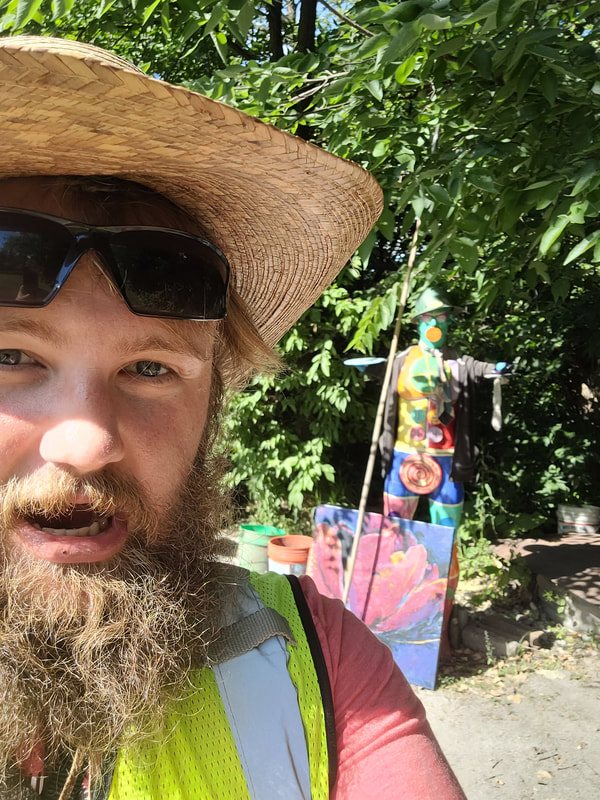
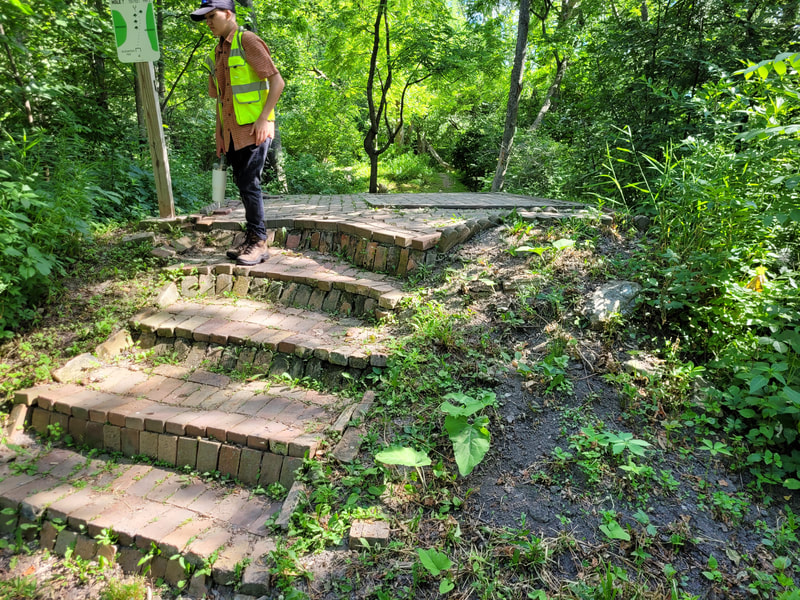
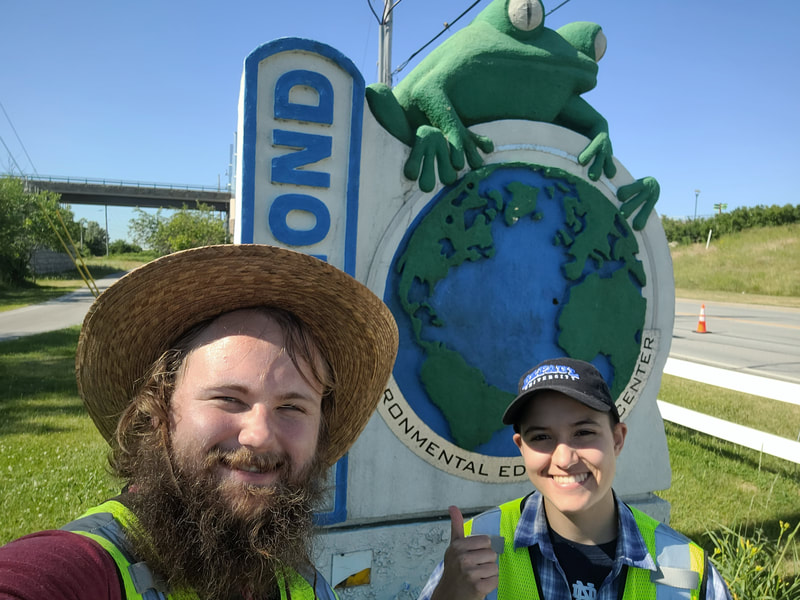
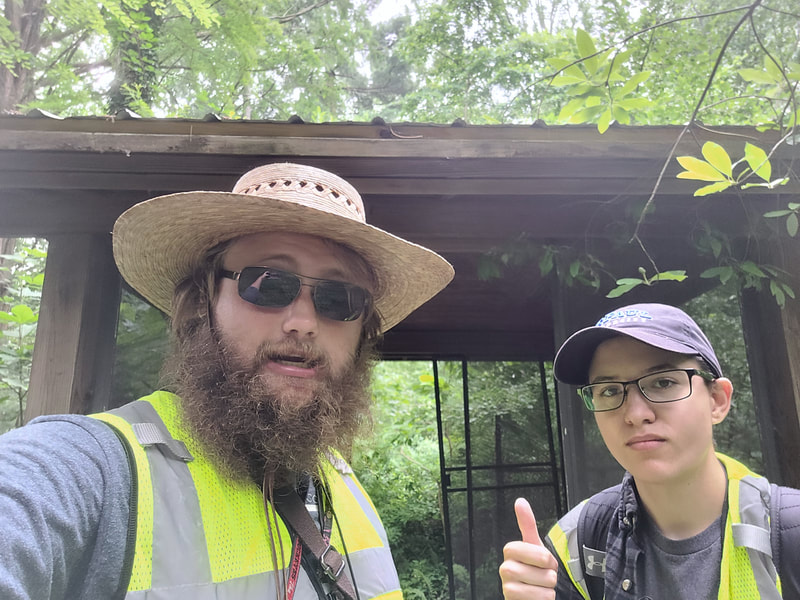
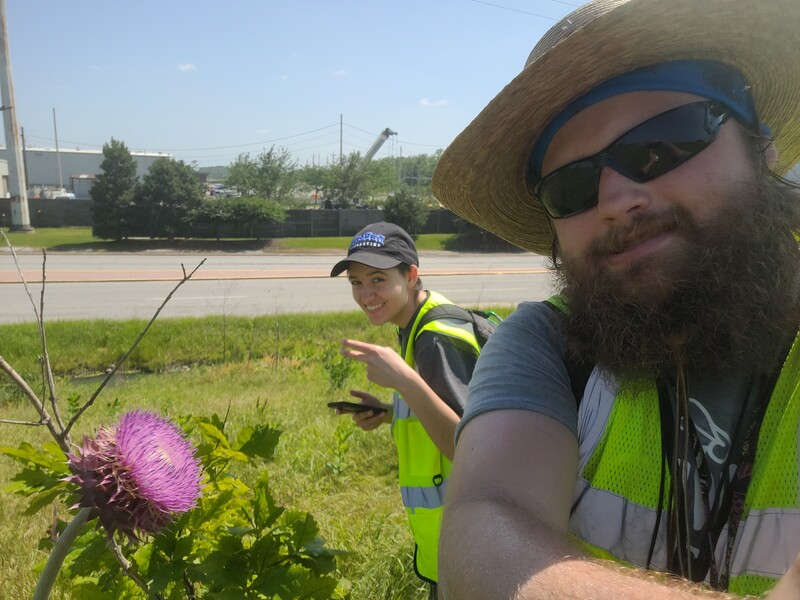
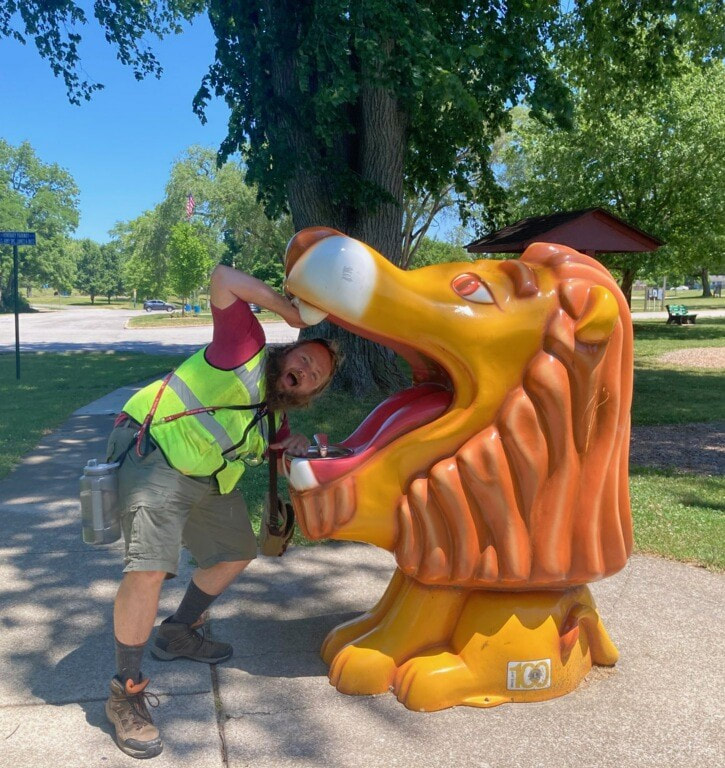
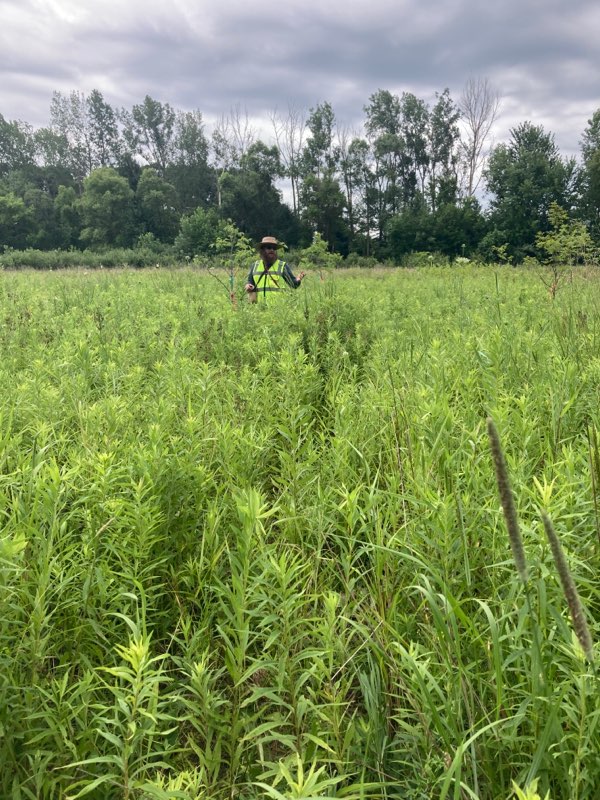
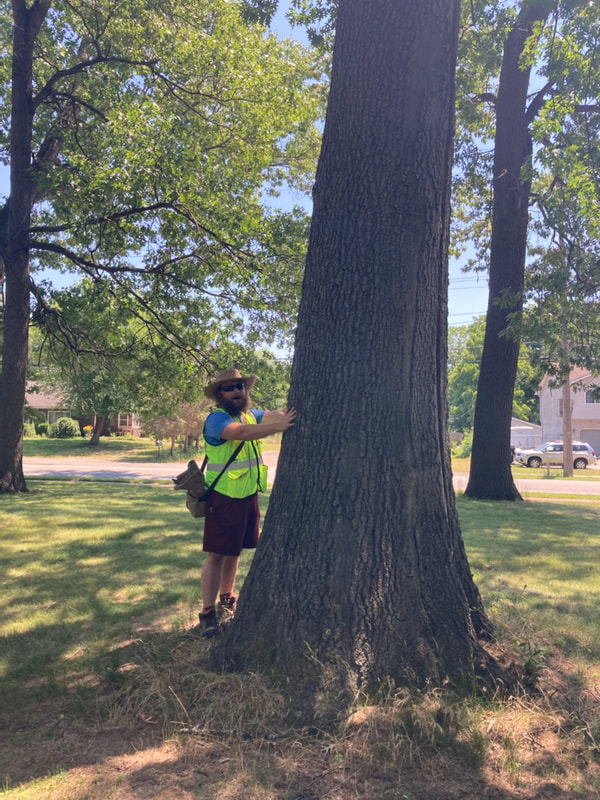
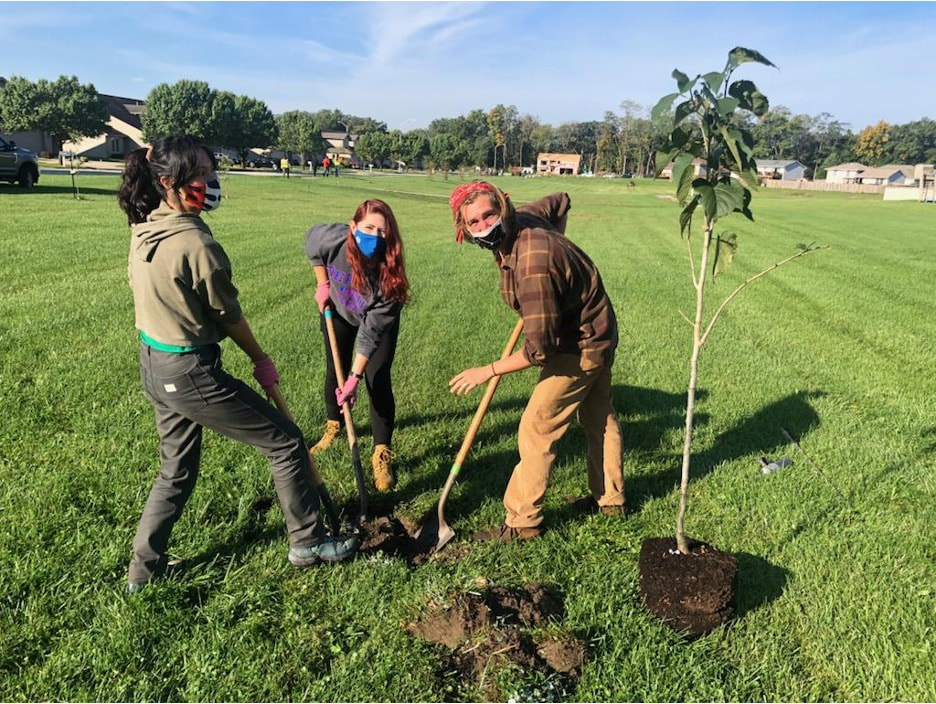
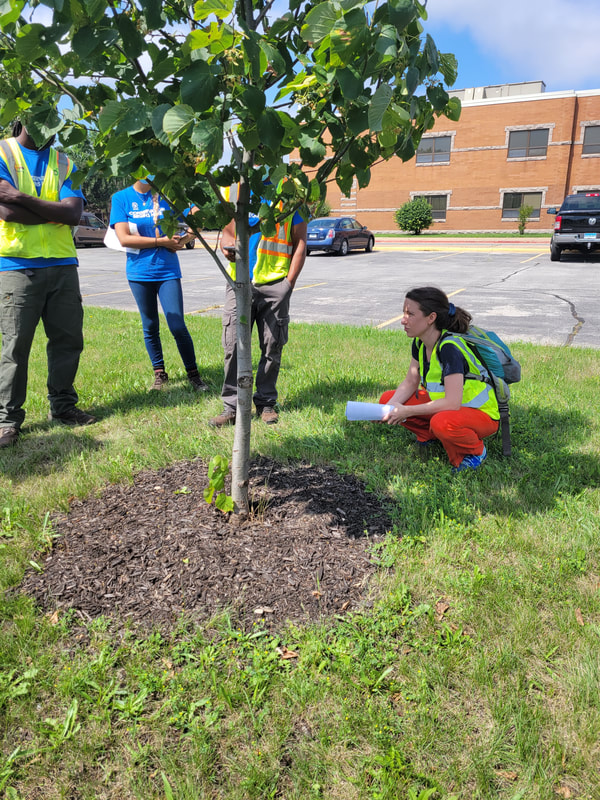
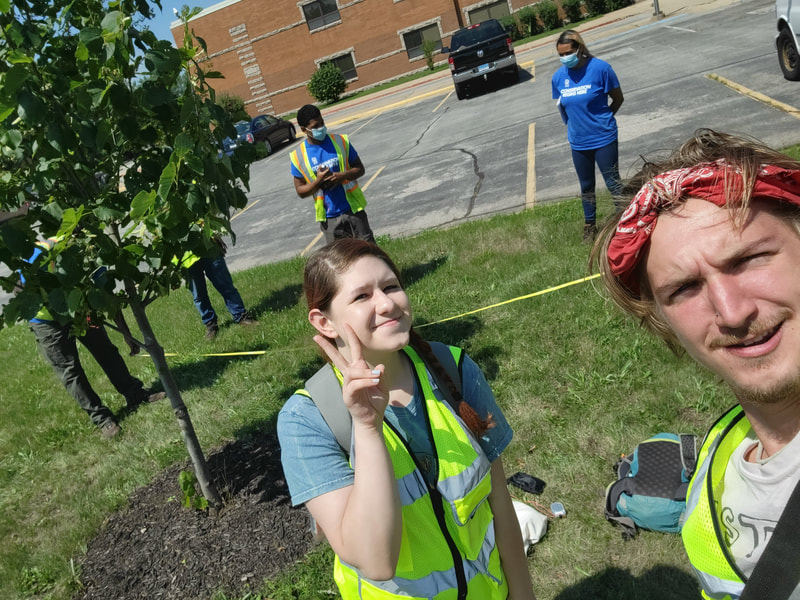
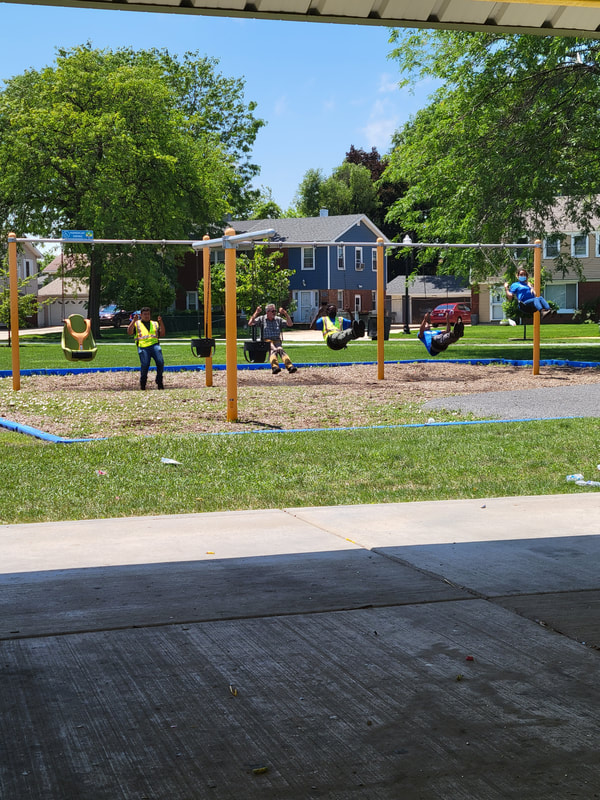
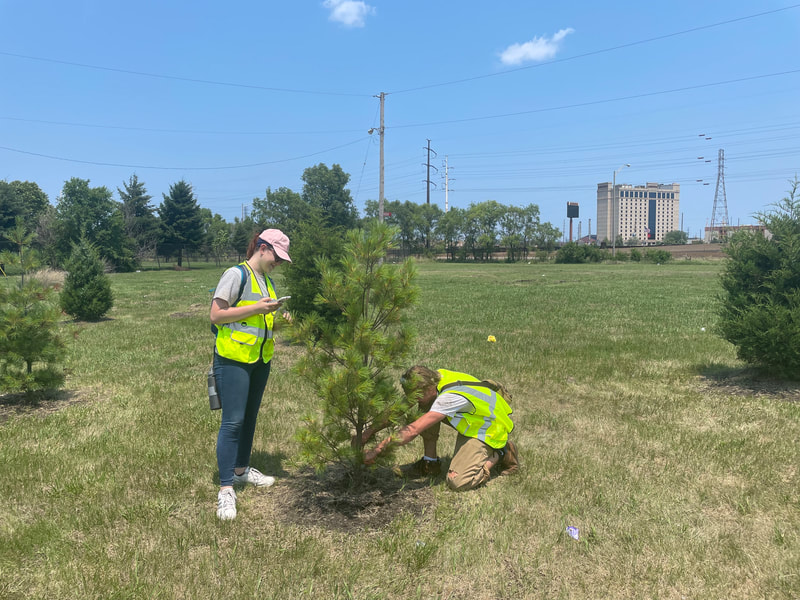

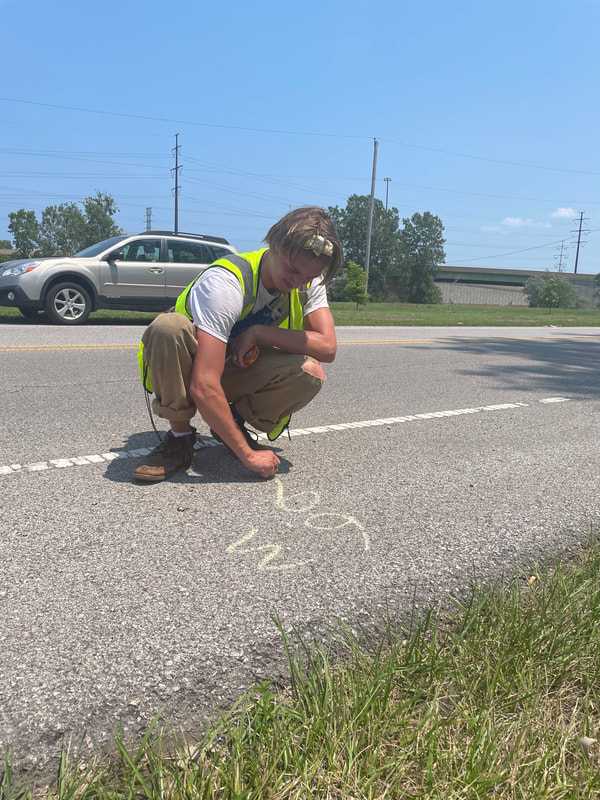
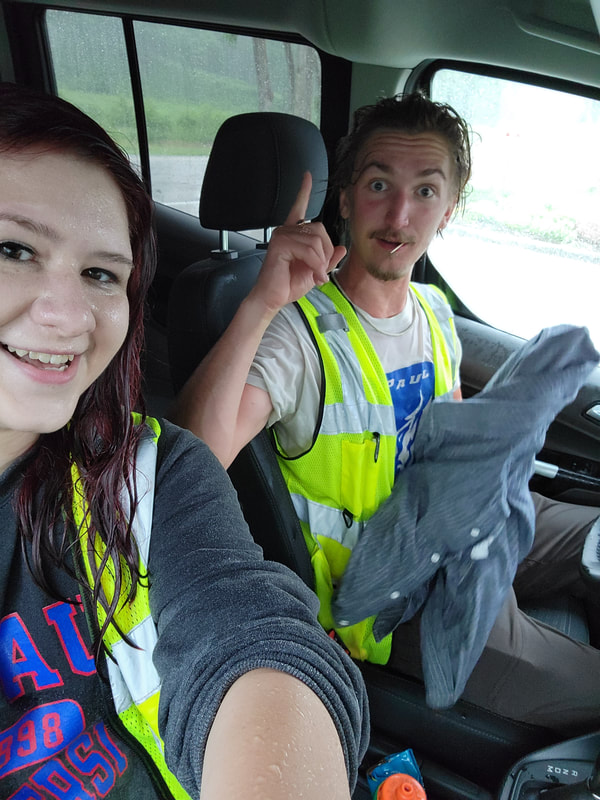
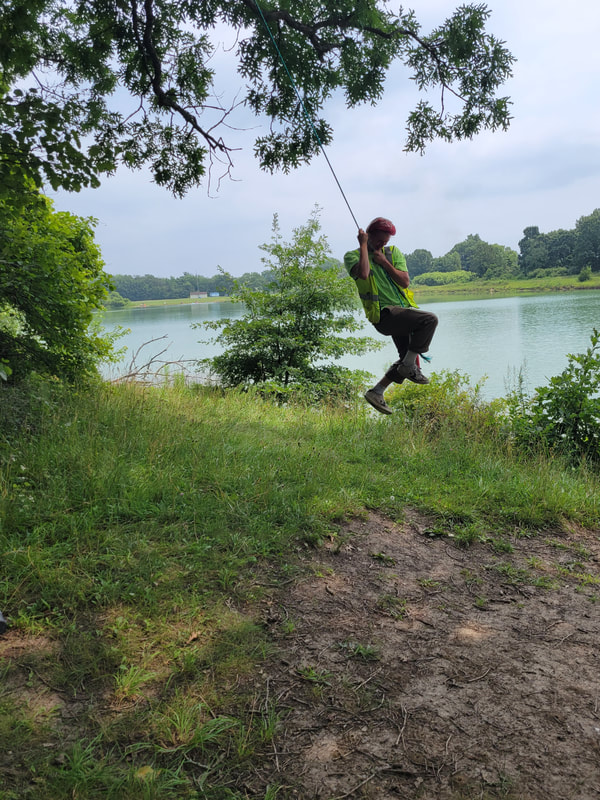
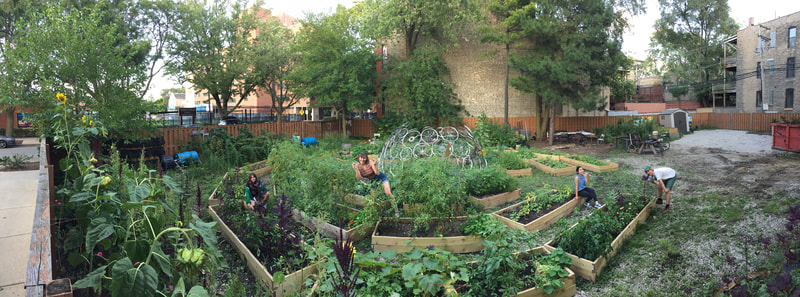
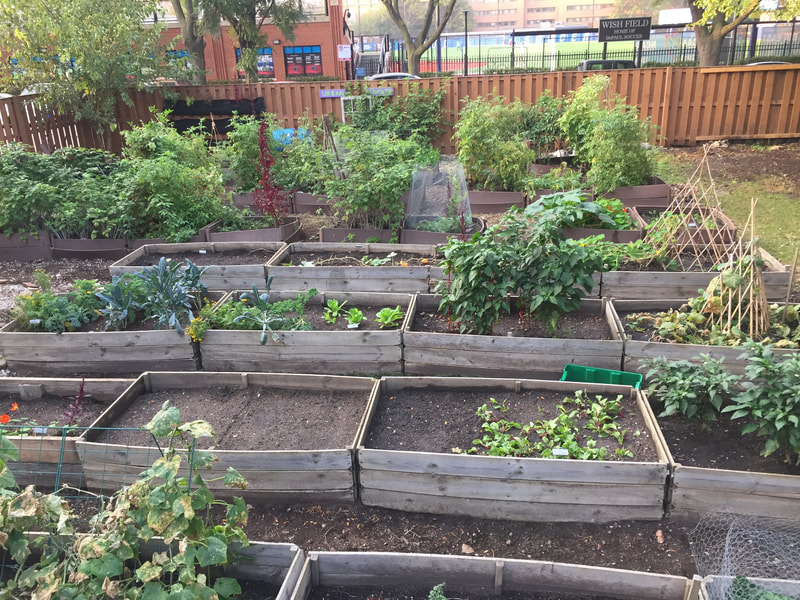
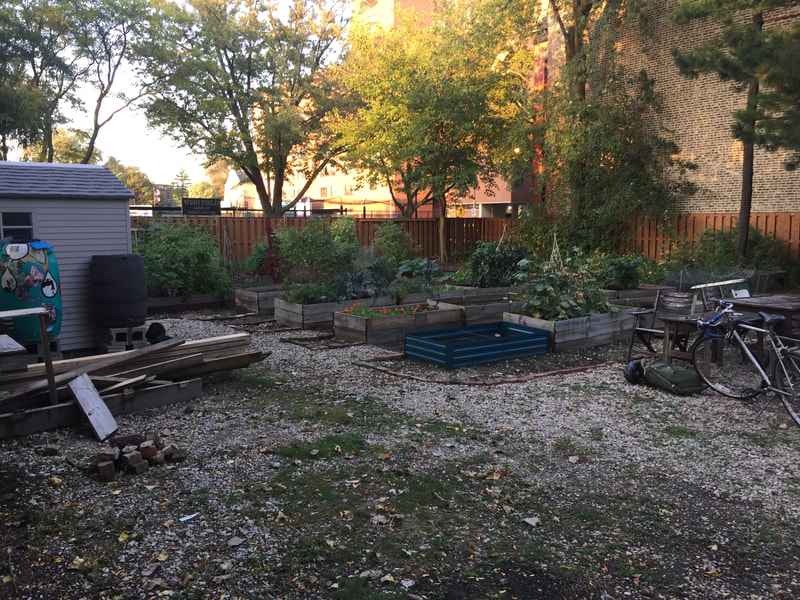
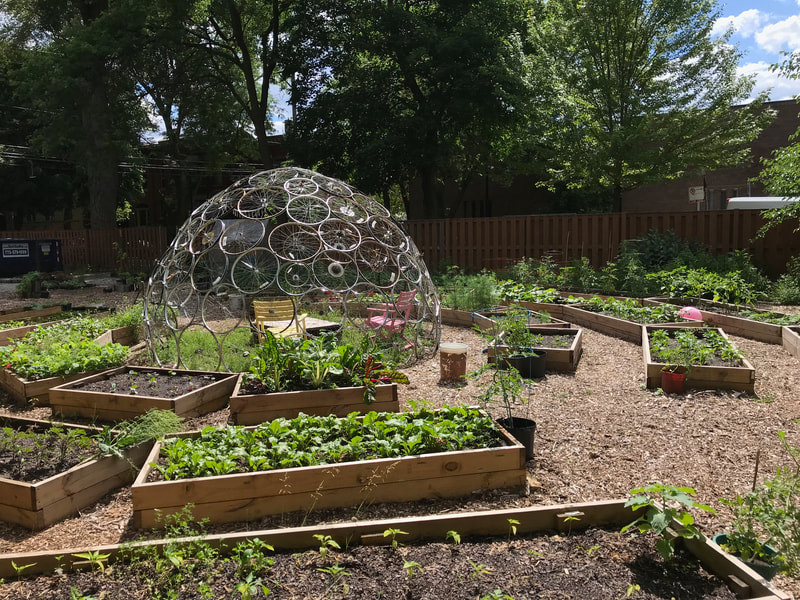
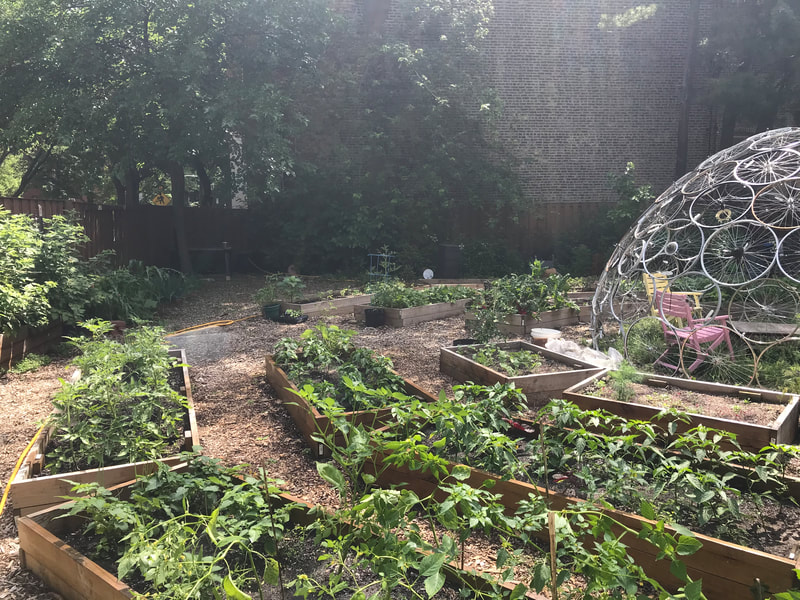
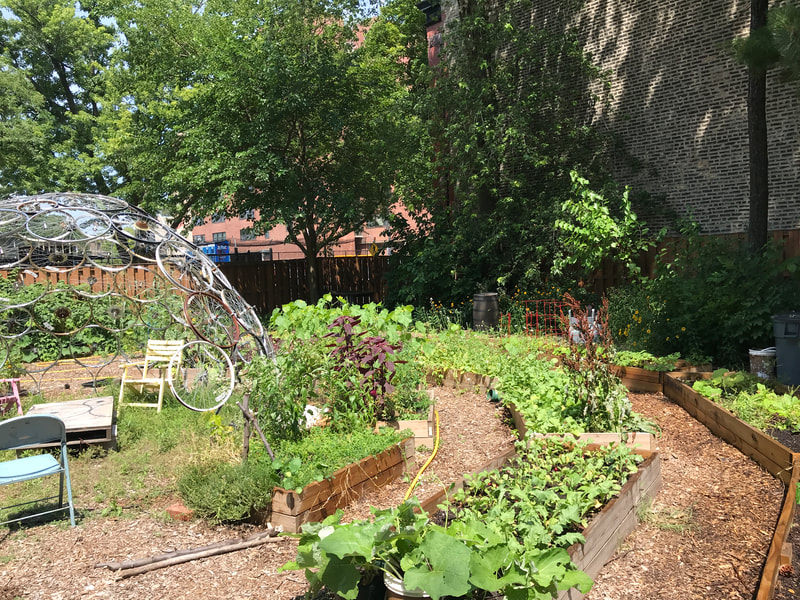
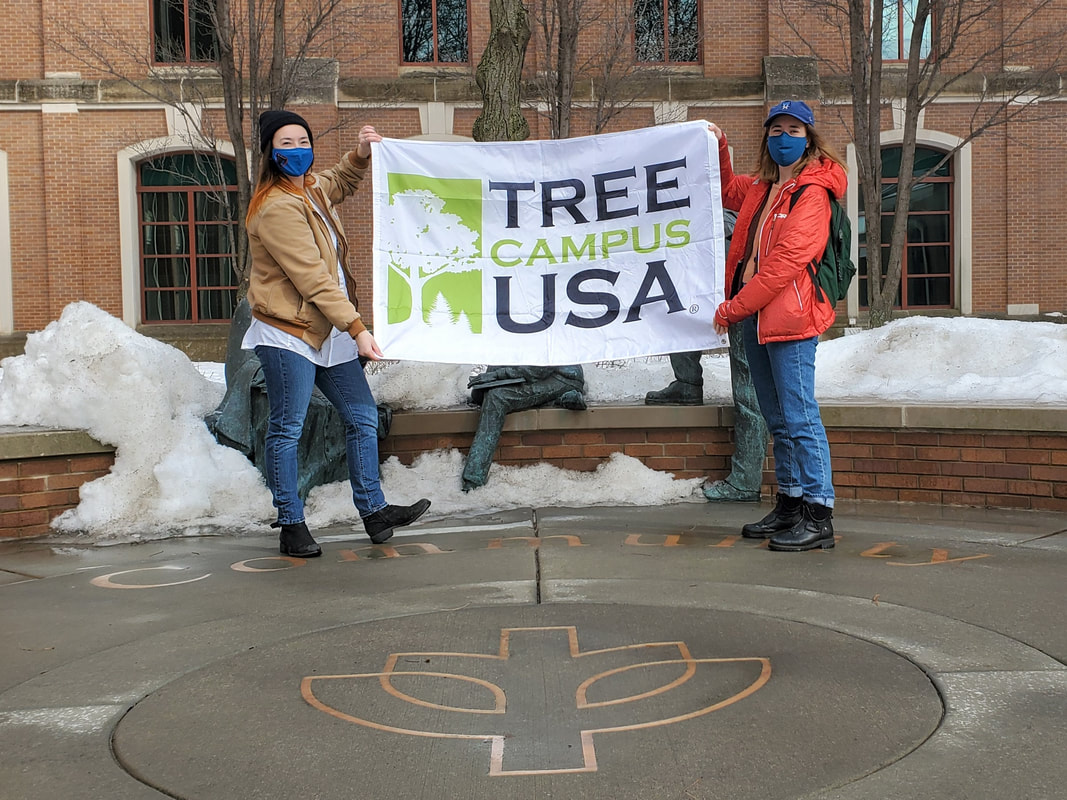

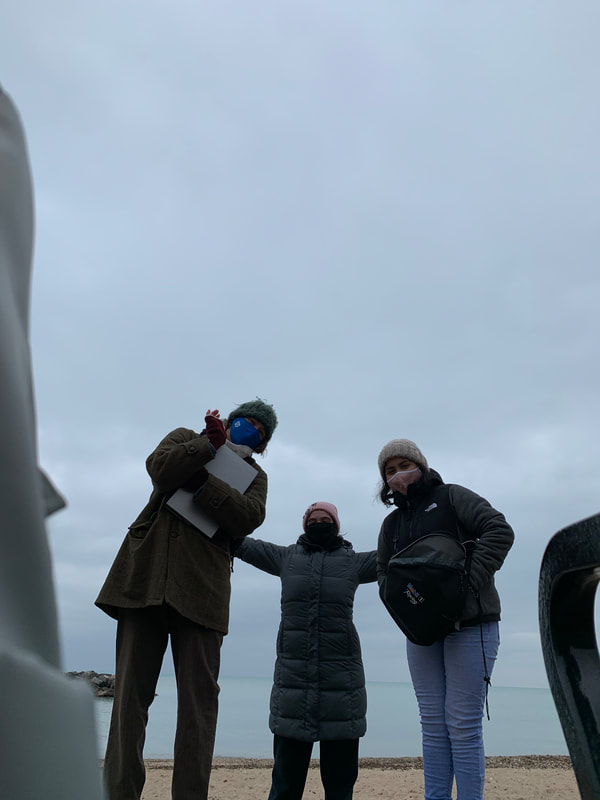
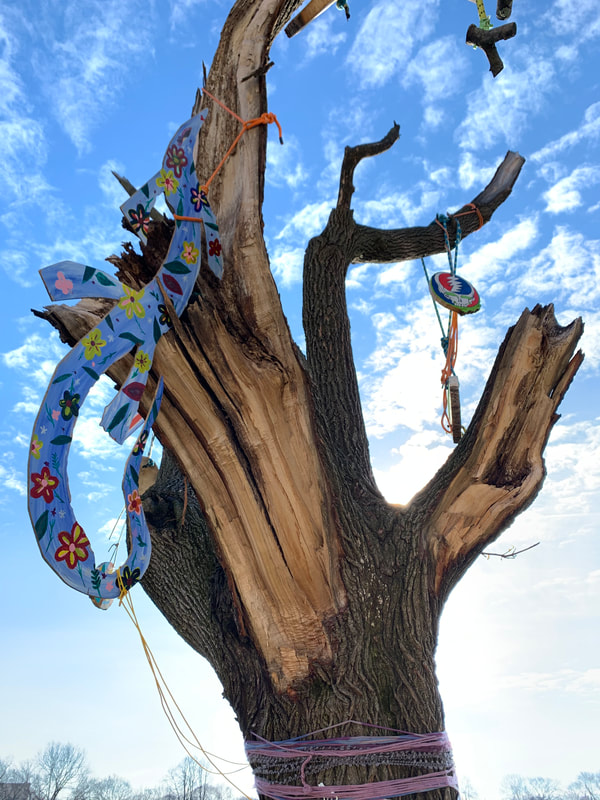
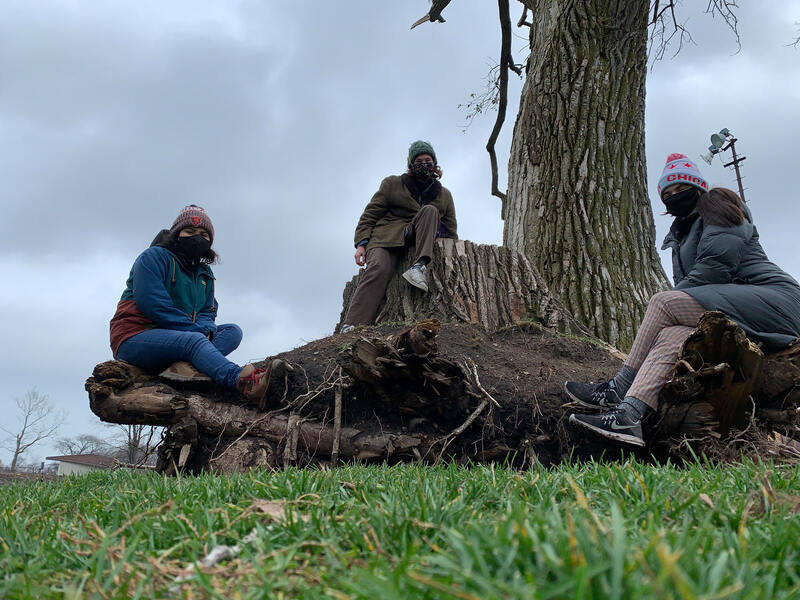
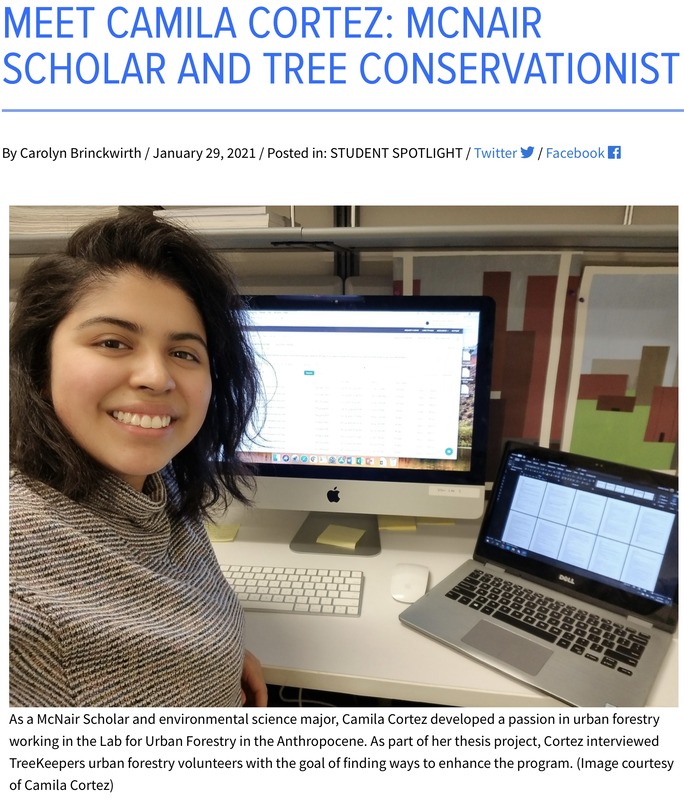
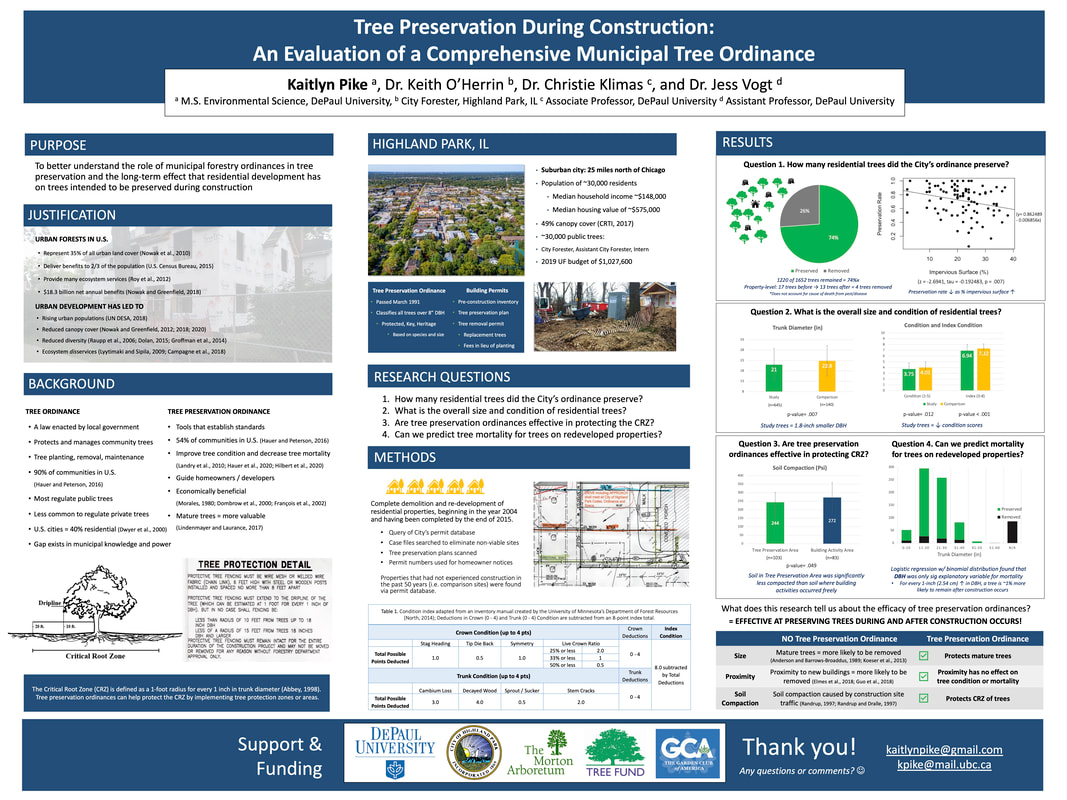
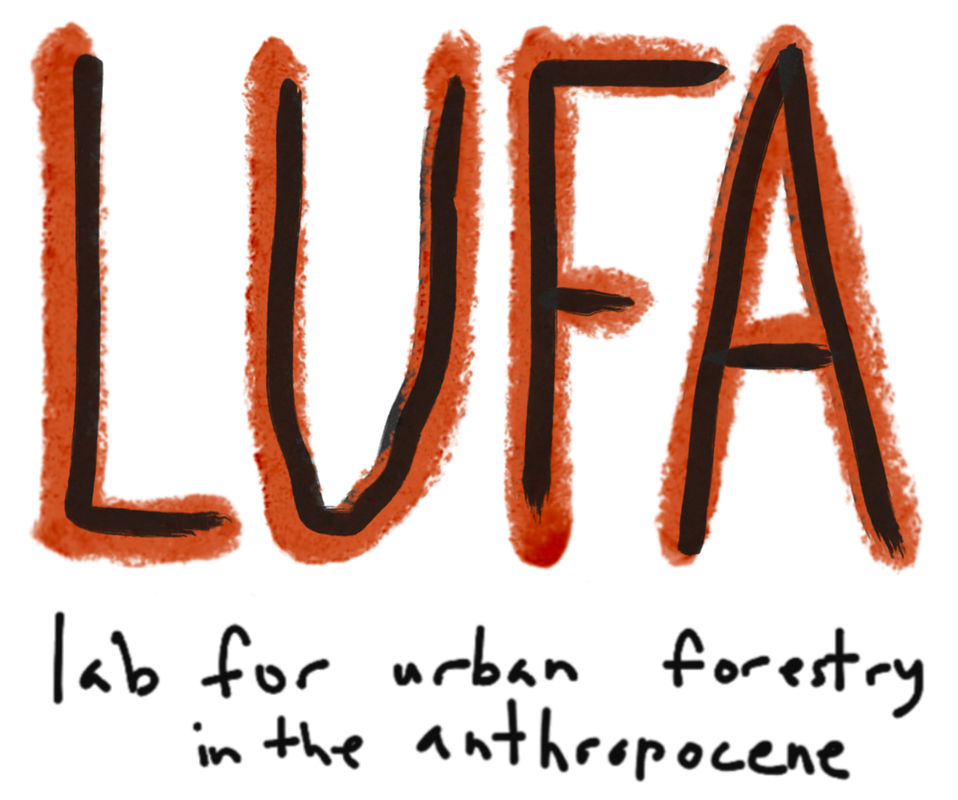

 RSS Feed
RSS Feed
